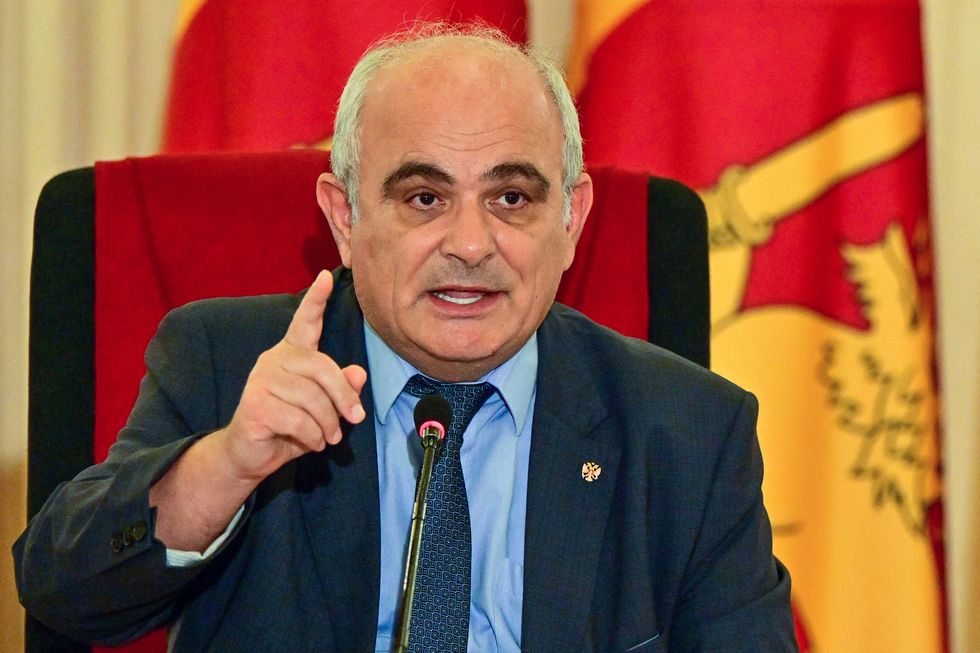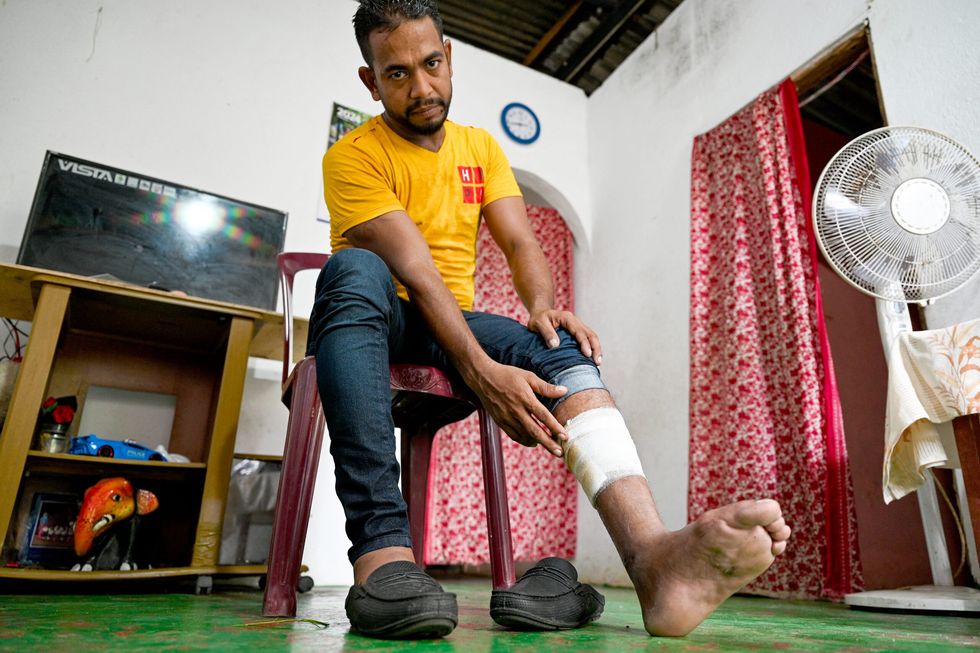WHEN Sri Lanka’s economy crashed in 2022, people sought work abroad wherever they could, including ex-soldiers who joined forces fighting in Ukraine after Russia’s invasion.
Now the veterans, some of whom swapped their life savings for what they thought would be lucrative, non-combat jobs, are desperate to come back home.
“What we ask is to help bring back our husbands,” said Renuka Karunaratne, 49, who said her husband was duped into going to Russia by a devious agent.
Colombo’s parliament set up an inquiry last month to track at least 2,000 battle-hardened Sri Lankans who reportedly enlisted on both sides of the Ukraine war, including in the regular armed forces and mercenary groups.
With no communication for months, and reports of at least 16 Sri Lankans killed and 37 wounded, distraught families are pleading with politicians for help.
The government says around a dozen Sri Lankans are being held prisoners in Ukraine, after being lured there in pursuit of work.
Advertisements on WhatsApp groups of retired military personnel promised monthly salaries of more than £1,655, 13 times the average income in Sri Lanka. Promises were also made of plots of land in Russia, where fighters and their families could settle.

Karunaratne said she and her husband paid £7,882.9 to an employment agent to get the job. “We have sold everything we owned, including jewellery,” she said while demonstrating outside the Russian embassy in Colombo last week. “We have mortgaged a part of our house too.” An economic crisis in early 2022 saw Sri Lanka run out of foreign exchange to import food, fuel, and other essentials, and ultimately default on its external debt.
Nilmini Chandima Dissanayake, 41, said hardship stemming from the downturn pushed her ex-soldier husband to go to Russia, more than 6,000 kilometres (3,700 miles) away. “My husband was in the commando regiment for 22 years,” Dissanayake told AFP. “He had retired, he did some odd jobs, but found it was not enough.”
She has not heard from him since May 1, one month after he arrived in Moscow to take up what he thought was a non-combatant role. “His last call was to plead to get him back home, to save his life,” she said. “Every passing day they lose hope of surviving.”
The war in Ukraine has taken a heavy toll on Russian troops, and Moscow has been on a global quest for more forces to fight.
Sri Lanka has maintained a large military relative to its 22-million population since the end of a decades-long civil war against the separatist Tamil Tigers in 2009. Moscow is believed to have hired thousands of foreign combatants, many of them from south Asia.
Neither Russia nor Ukraine will say how many foreigners are serving in their militaries or how many they are holding as prisoners of war. In parliament, Sri Lankan deputy defence minister Premitha Tennakoon did not specify how many citizens were fighting on each side of the conflict.
Colombo has remained neutral in the Ukraine war, but reports that Russian authorities supported the recruitment of ex-soldiers from Sri Lanka have sparked tensions. Police have arrested two retired Sri Lankan generals for illegally acting as recruiting agents for Russian mercenary firms, as well as six people who allegedly helped them with logistics. The state minister for foreign affairs, Tharaka Balasuriya, said Sri Lanka was pushing Ukraine to release prisoners of war, and would send a delegation to Moscow.
“If Sri Lankans are in a dangerous situation, it is the duty of the government to ensure they are safely returned,” Balasuriya said. The Sri Lankan foreign ministry said last Tuesday (11) that Moscow agreed not to recruit anymore Sri Lankans to their military.

The Sri Lankan foreign minister, Ali Sabry, raised the issue with his Russian counterpart Sergei Lavrov on the sidelines of the BRICS ministerial meeting in Moscow, the ministry said. “It was also agreed that no further recruitment from Sri Lanka will be done,” the ministry said.
Moscow will accept a delegation from Sri Lanka next Wednesday (26) to “review these iissuesin detail and take suitable action to arrest the situation,” the ministry statement said.
Russian ambassador Levan S Dzhagaryan said “a lot” of visas had been issued to Sri Lankans, but insisted that they had not told the embassy why they wanted to go to Moscow. “Why are you talking only about Russia?” the ambassador challenged reporters last month in Colombo. “Why do you not talk about Ukraine?”
At least 22 Sri Lankans who joined Russian forces have managed to desert, escape and return home, defence officials said. “They were duped,” defence ministry spokesman Nalin Herath told AFP.
Hotel driver Anil Madusanka, 37, is one of them. “Many people have economic problems,” said Madusanka, now recovering at his home outside Colombo after seven terrifying weeks in Russia. “That is why they go to Russia or Ukraine.”
He thought he would swap driving tourists for a promised job driving in Russia, but was handed an assault rifle instead and sent to the battlefront to face Ukrainian forces. He was wounded by shrapnel that tore into both his legs. From a hospital, he fled to the Sri Lankan embassy in Moscow, which arranged his repatriation last month.
“I am lucky to have escaped,” Madusanka said.



















